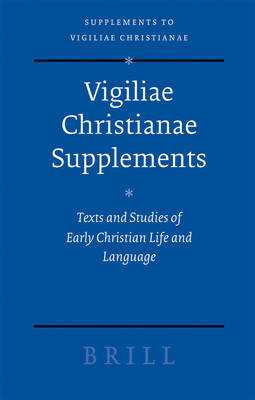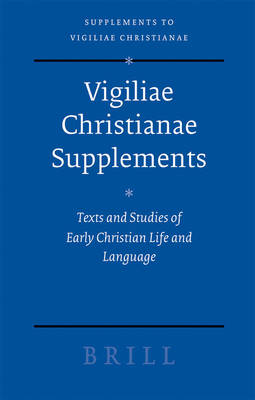
- Afhalen na 1 uur in een winkel met voorraad
- Gratis thuislevering in België vanaf € 30
- Ruim aanbod met 7 miljoen producten
- Afhalen na 1 uur in een winkel met voorraad
- Gratis thuislevering in België vanaf € 30
- Ruim aanbod met 7 miljoen producten
Zoeken
Evil, Freedom, and the Road to Perfection in Clement of Alexandria
Peter Karavites
€ 311,45
+ 622 punten
Omschrijving
This study deals with Clement of Alexandria's interpretation of evil and free will in the context of the rising Christianity, the influence of Near Eastern and Greek thought on him, his differences from St. Augustine, and how his interpretation affected the rise of the Eastern Christian thought.
The book also treats briefly the subject of man's personal aim in life perceived by Clement as the supersession of his nature. Failure to realize this personal aim in life leads to alienation from God, and death.
The moral dilemma of Clement's interpretation of evil as failure of life's aim is not a conventional explanation of good and evil but something much more: the option between real life and death. Consequently, Clement's idea of evil refers to existential problems and ontological realities.
The book also treats briefly the subject of man's personal aim in life perceived by Clement as the supersession of his nature. Failure to realize this personal aim in life leads to alienation from God, and death.
The moral dilemma of Clement's interpretation of evil as failure of life's aim is not a conventional explanation of good and evil but something much more: the option between real life and death. Consequently, Clement's idea of evil refers to existential problems and ontological realities.
Specificaties
Betrokkenen
- Auteur(s):
- Uitgeverij:
Inhoud
- Aantal bladzijden:
- 208
- Taal:
- Engels
- Reeks:
- Reeksnummer:
- nr. 43
Eigenschappen
- Productcode (EAN):
- 9789004112384
- Verschijningsdatum:
- 15/12/1998
- Uitvoering:
- Hardcover
- Formaat:
- Genaaid
- Afmetingen:
- 169 mm x 248 mm
- Gewicht:
- 530 g

Alleen bij Standaard Boekhandel
+ 622 punten op je klantenkaart van Standaard Boekhandel
Beoordelingen
We publiceren alleen reviews die voldoen aan de voorwaarden voor reviews. Bekijk onze voorwaarden voor reviews.











